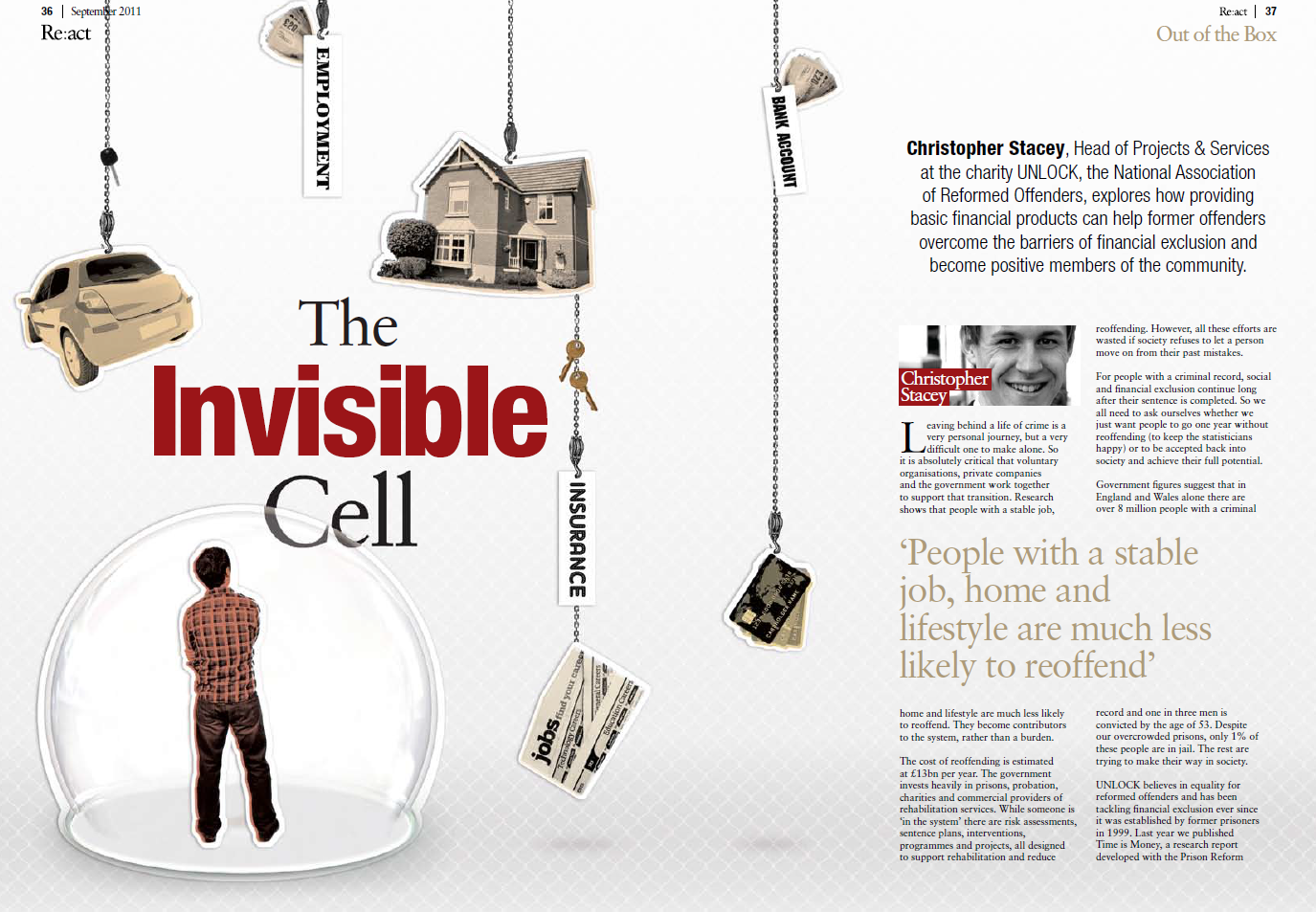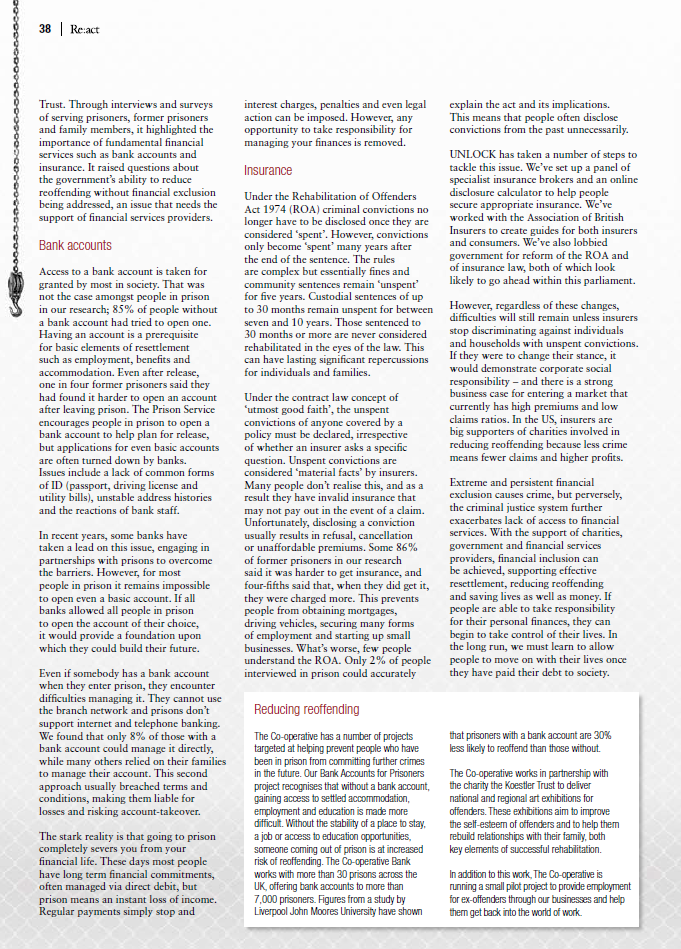Unlock has now come to the end of a landmark 9-year project in developing access to basic bank accounts for people in prison before release. We are pleased to publish a report on this work. It reflects on the progress that we have made, and sets out a number of recommendations to the National Offender Management Service (NOMS), prisons and the banking industry, so that the progress is sustained and developed even further.
Back in 2005, we first identified the issue of people coming out of prison who had managed to secure employment, but were losing these opportunities because they didn’t have a bank account to get paid their wages into. The personal testimony below demonstrates the importance of this. It seemed like a simple problem to resolve, to open an account before release, but there were a number of complex underlying issues that stood in the way, not least the lack of engagement from many banks, and the lack of awareness of the issue across prisons.
During the 9 years that followed, we worked at various levels; piloting a process in a small number of prisons; rolling this out into further prisons; working with the banking industry to develop a fair and sustainable process; working with specific banks to develop their operating processes; and providing training/support to prisons. The work took much longer than we had expected. What began as a small charitably-funded pilot project ultimately ended up in a national campaign involving significant political and media attention.
And we are immensely proud of the progress we’ve made. In 2013-14 alone, 5,936 basic bank accounts were opened for people in prison, ready for them to use once they were released. In total, we have helped to set up 74 prison/banking programmes, and overall 114 prisons have links with a high-street bank. Ultimately, all prisons that want and need a basic bank account opening programme now have one in place, which was the principal aim of the project.
This work shows the value of being responsive to the issues that people are facing. Unlock’s independence, and “ear to the ground, voice at the top” approach has enabled us to achieve systemic change to a long-standing problem.
Unlock are now handing over day-to-day responsibility to NOMS for sustaining and developing the project. We look forward to seeing this work continue, so that all people near to release are able to apply for a basic bank account which is set up and ready for them to use when they are released so that they are better able to lead law-abiding lives in the future.
For more information about this work, visit the bank accounts policy section.
The importance of this work – A personal testimony
“I was in an open prison a couple of years ago. Having gone into prison with the loss of everything, I had no bank account, no ID, no anything. I was approached by staff one day and told about this wonderful scheme which would allow me to get started again. Very simply, the bank was Barclays and they had the most amazing very straightforward system for getting a bank account open. I would highly praise them, and Unlock for organising it, and for the way that is done. The account is opened, you have the bank card and details a couple of weeks later, and they are kept in your private property until you are released from prison. So you are actually ready to go the day you get out.
But to me the biggest things are the personal things. Self-esteem is a big thing and the bank account helped a great deal with that. Can you imagine what it is like not to have a bank account? Just for a moment. Not so much the practicalities but what it says about you. Why haven’t you got one? People give you funny looks, or you suspect they do. Getting a bank account in prison made me feel a great deal better about myself; that I belonged, and that reintegration was possible. Prison, for all the wrongs you have done to get you there, is a very lonely place, and that’s one of the problems when it comes to reintegrating when you get out. Anything that can be done to improve things there will help people.
Confidentiality is another thing: the way the accounts are set up. When you go to your branch when you get out, the staff don’t know you are an ex-offender. There is nothing on the system to say: this man is a former criminal; this account was set up in prison. That’s a fantastic feeling: to walk in to a branch as a normal citizen. One of the things that really hit me when I came out of prison, when I got onto the Jubilee line to head home, I was absolutely paranoid, that I had ‘prisoner’ stamped across my forehead. I kept looking round the carriage thinking ’they know’. And I’m not normally a paranoid person. A lot of people go through that. But when you walk into a bank branch and know they will treat you as a normal customer, and that rubber stamp on your forehead is no longer there, that is a fantastic feeling.
There are too many things, emotionally, that drag people back into prison. I know it sounds strange but I think bank accounts and having them set up for you, can help reduce re-offending. It’s one thing out of the way. You’ve got your benefits when you come out, you get paid when you find employment, it’s just one less box you have to tick. I think it’s a fantastic scheme and long may it continue, and be rolled out across the estate.”
Person with convictions, released from prison

